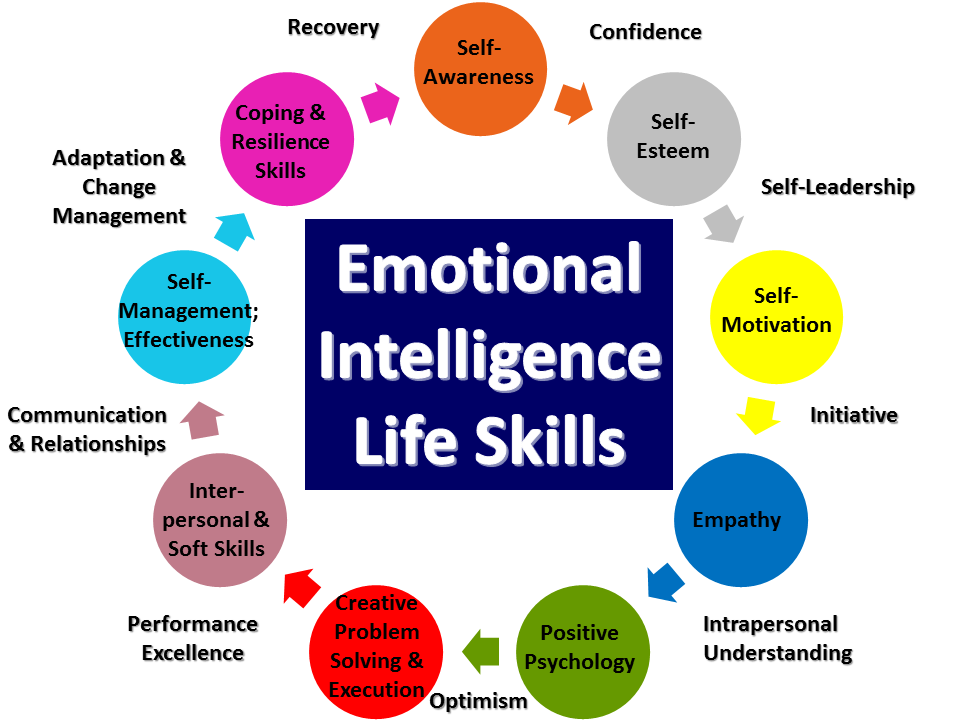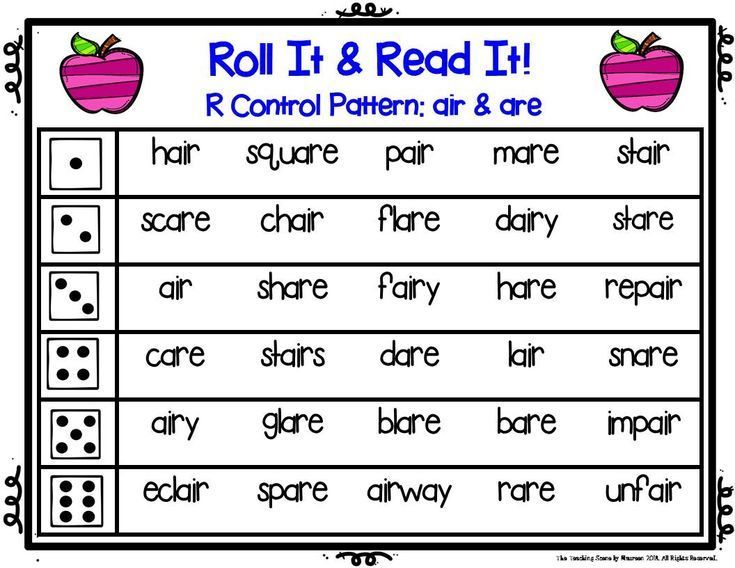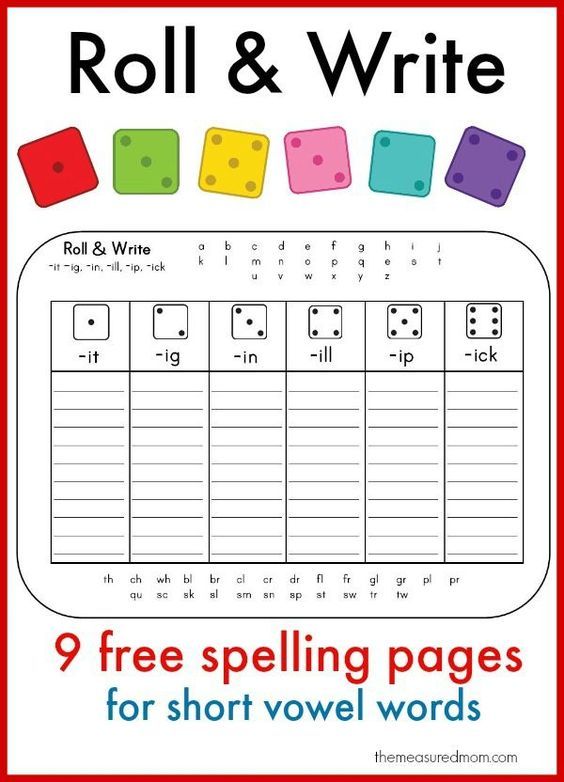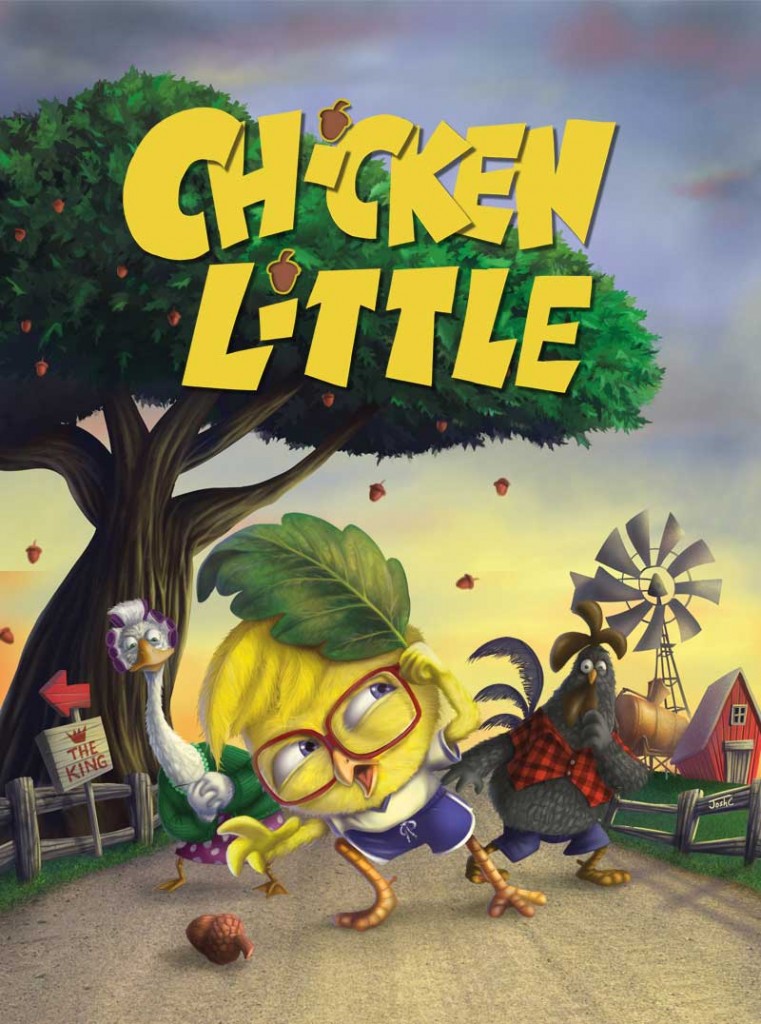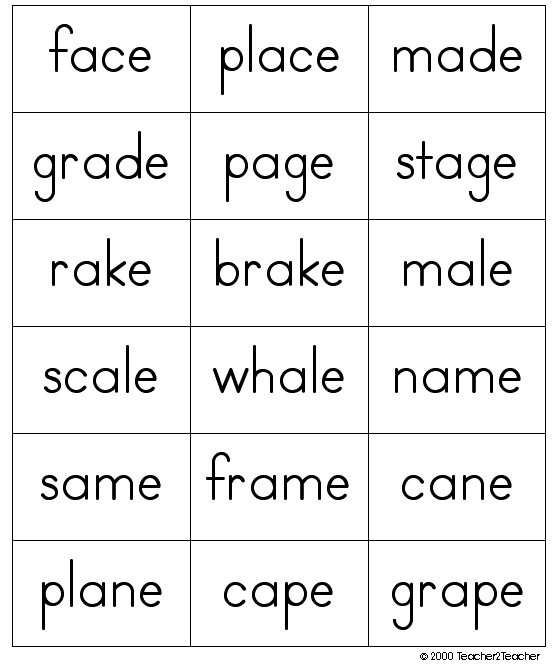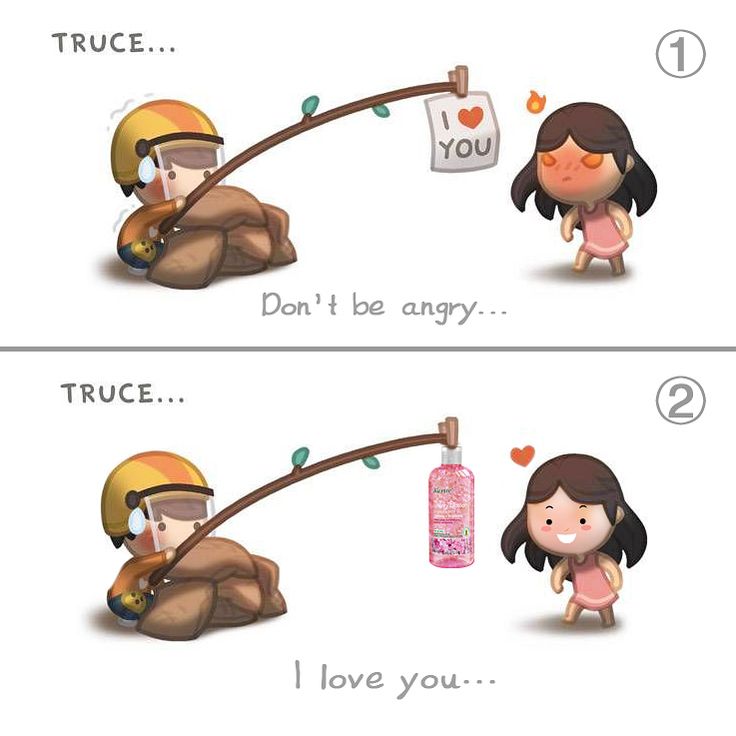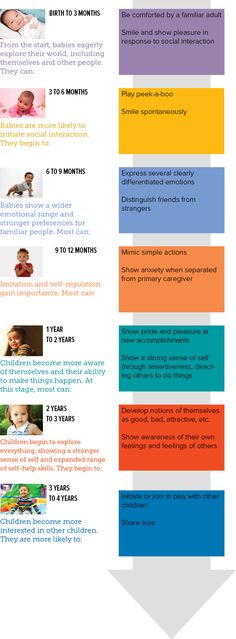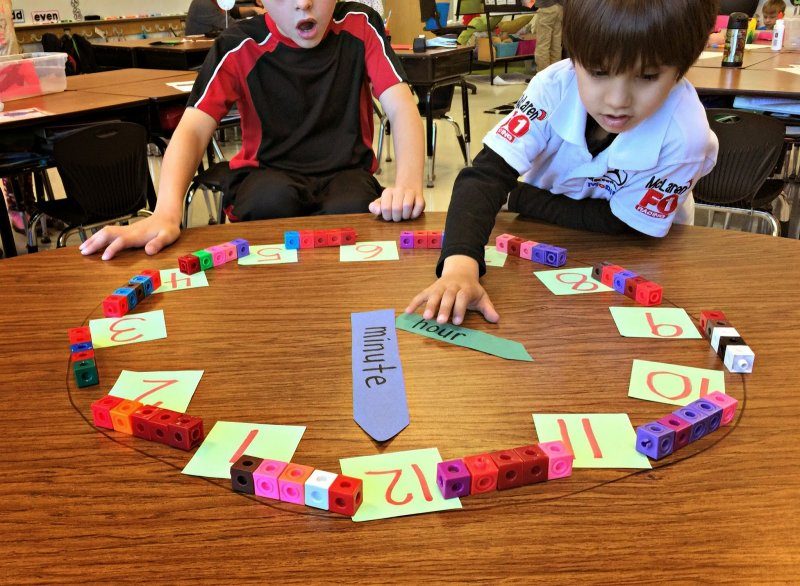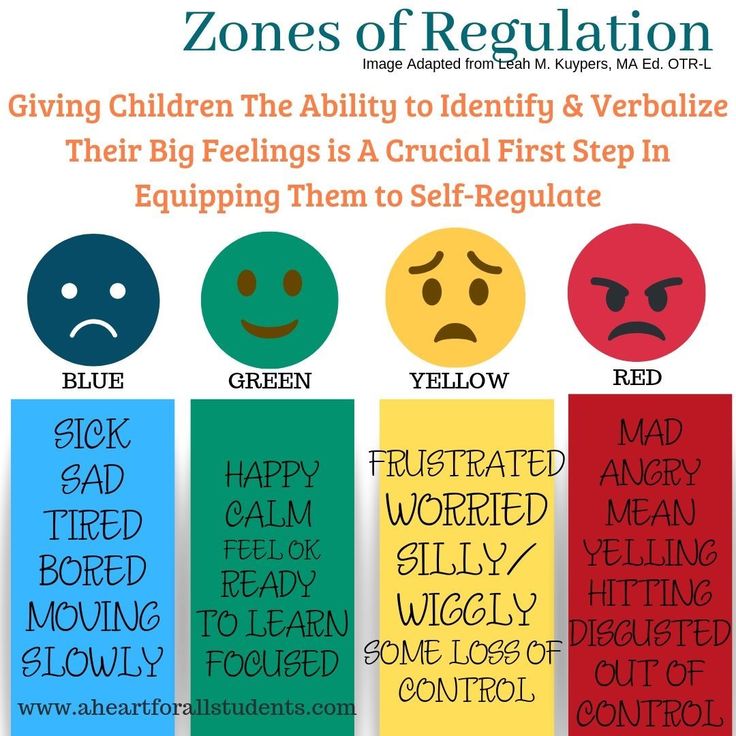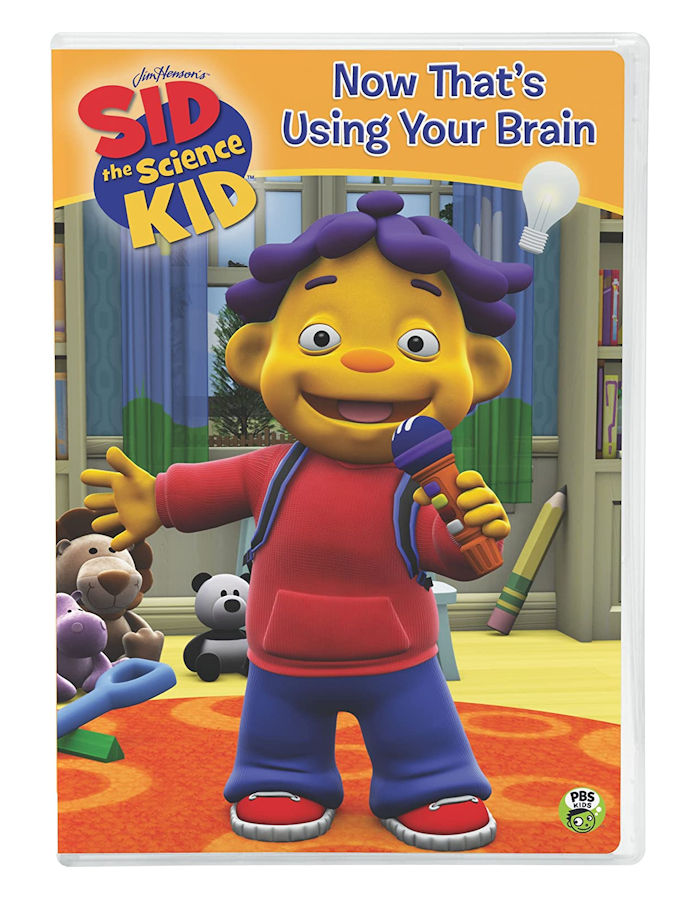Social skills questions
21 Social Skills Competency Questions Examples
This article will discuss how we can use our social abilities to pass a competency-based interview with these 21 relatable examples successfully. We will be sharing the full list of social skills competency questions, at the end of this article. You can download them for free.
But before we get to list and discuss them, first, we will know a little bit about how competency interviews function so we can prepare for them.
A competency-based interview is a selection process composed of several stages. It begins with identifying the need to create a vacancy and goes through the selection of curriculum and specific tests until the interview.
Competency-based interview questions always require an example of something you’ve done in the past; For example, an employer may start the question by saying:
The Power of Constructive Feedback
Please enable JavaScript
The Power of Constructive Feedback
- Describe a time when …
- Give an example of when …
- Have you ever been in a situation where …
- Tell me about a time when …
Competence and skill are two concepts that are related. While skill consists of putting into practice theories and mental images that have been acquired, competence is broader and consists of injunction and coordination of knowledge, attitudes, and skills. So there are social skills that we need to have to answer competency questions and successfully quickly.
SOCIAL SKILL | COMPETENCY QUESTION |
Verbal Communication | Describe how you communicate to your team a new project, new methodology, or new routines? |
| Imagine that you received a far higher target than expected; how are you going to act in disseminating this information to your team? | |
- It allows the articulation of the information that we want to transmit in the best possible way between what we live, think, and feel;
- Communication is an aggregated value of interest to any institution, whether about employees who are at the same hierarchical level or superiors or subordinates.
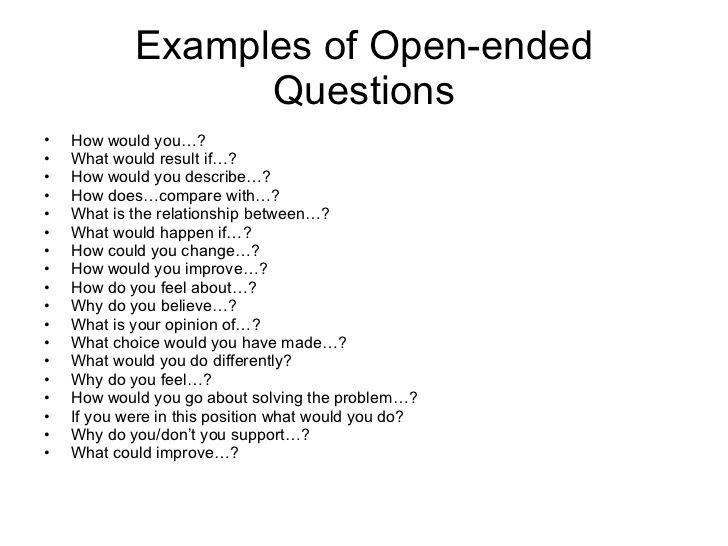
| SOCIAL SKILL | COMPETENCY QUESTION |
| Decision-Making | What’s the hardest decision you’ve ever made in your life? Tell us about it. |
| What’s the most assertive decision you’ve ever made, and what’s the most disastrous? Tell us about it? | |
| Describe a situation where you had to complete a job with a high standard and at the same time meet a strict deadline. |
How do we demonstrate decisions in the workplace?
In business decision-making, the first step is to know the impasse to be solved and try to see the situation as clearly and logically as possible, considering all the points. Then, make a good analysis of the possible alternatives, separating each of them’s positive and negative points.
Making decisions is a daily challenge for managers and professionals in all areas.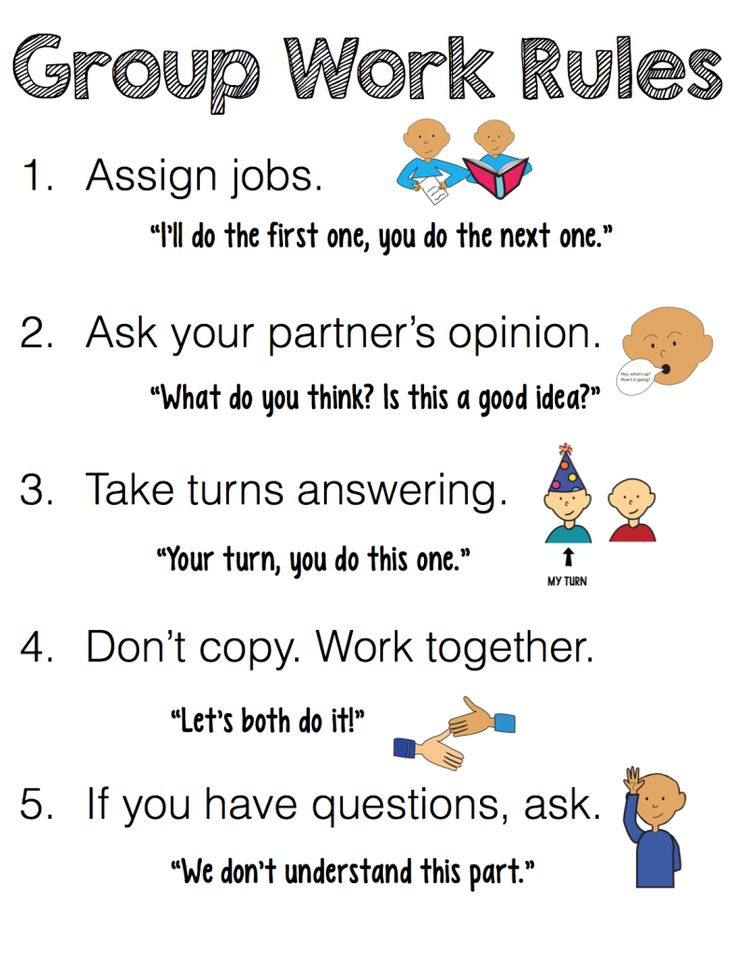 And doing this intuitively, without data and hard facts, can be extremely damaging to any business.
And doing this intuitively, without data and hard facts, can be extremely damaging to any business.
| SOCIAL SKILL | COMPETENCY QUESTION |
| Positive Attitude | Comment on a case where you worked as hard as possible and felt like you weren’t recognized but continued the task until the final delivery. |
| Tell us about a situation where you insisted on defending your ethical values, even though the climate was not prone to this behavior? |
- Looking for tips not to procrastinate during activities we need to perform;
- Respecting everyone avoiding speeches and prejudiced attitude;
- Pay close attention to the amount of harmful content you consume every day, whether sad news or angry text;
- Reduce content that causes you anxiety and increase content that makes you feel good.
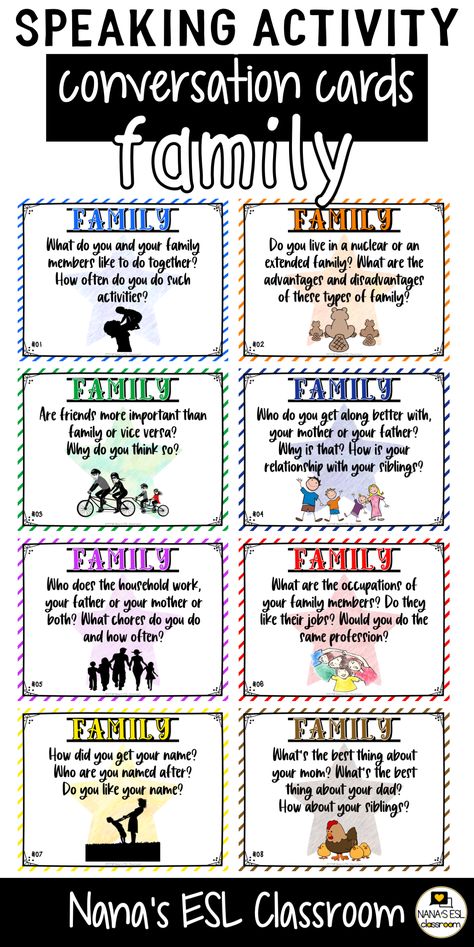
| SOCIAL SKILL | COMPETENCY QUESTION |
| Cognitive Flexibility | Have you ever lived a situation that forced you to change your mind suddenly? How did you do? |
| Tell me about a time when you had to take responsibility for a task that was not part of your scope of work. What was it like? | |
| How do you react to difficult changes? Give a specific example. | |
| Tell me about some critical situation in a project you could predict and take actions that would prevent a failure? |
- Create a reading routine, as reading activates various regions of the brain, working together at the same time, it represents a mental exercise;
- Studies have shown that the practice of mindfulness meditation can increase both attention and cognitive flexibility;
- Regular aerobic exercise is associated with the growth of new brain cells and is an effective way to increase cognitive flexibility.
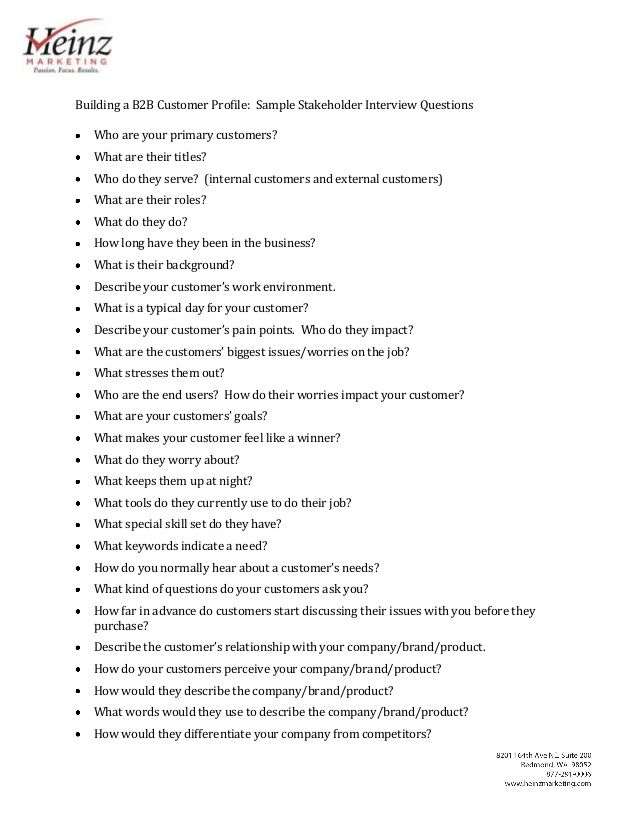
| SOCIAL SKILL | COMPETENCY QUESTION |
Time Management and Organization | Describe a situation where you had to solve several critical problems on the same day. How did you get through this? |
| Tell us an example of how you organize your personal and family priorities? | |
| Give examples of how you identified a work routine problem, looking more closely at the situation/project. |
- Know how to say no, the work overload generates more fatigue and consequently, less productivity;
- Find out what time you perform your activities with the most effective and adapt;
- Have a weekly moment to make a planning of your activities of the week, analyze your backlogs, your projects, and even professionals;
- Disable mobile message notifications and email alerts;
- Take a moment or two in your day to check messages, emails, or social media.

| SOCIAL SKILL | COMPETENCY QUESTION |
| Leadership | Tell us about a delivery you made that depended on the team and how you did to motivate people to deliver the results. |
| Do you remember any meetings where you had to position yourself quickly and your communication was effective? Tell us in detail how it was. | |
| Give us examples of how you check the results of your area’s goals. And how do you establish the action plan to achieve them? |
What is the importance of leadership in the workplace?
Leadership in the workplace is an essential function of management. It helps maximize efficiency and achieve organizational goals. For a good leader, the satisfaction and performance of its leaders are also part of the processes.
A good leader in a work team is the one who knows that the secret to team-work consists in:
- Delegation of tasks;
- Assignment of responsibilities where each professional can develop according to their knowledge and skills.
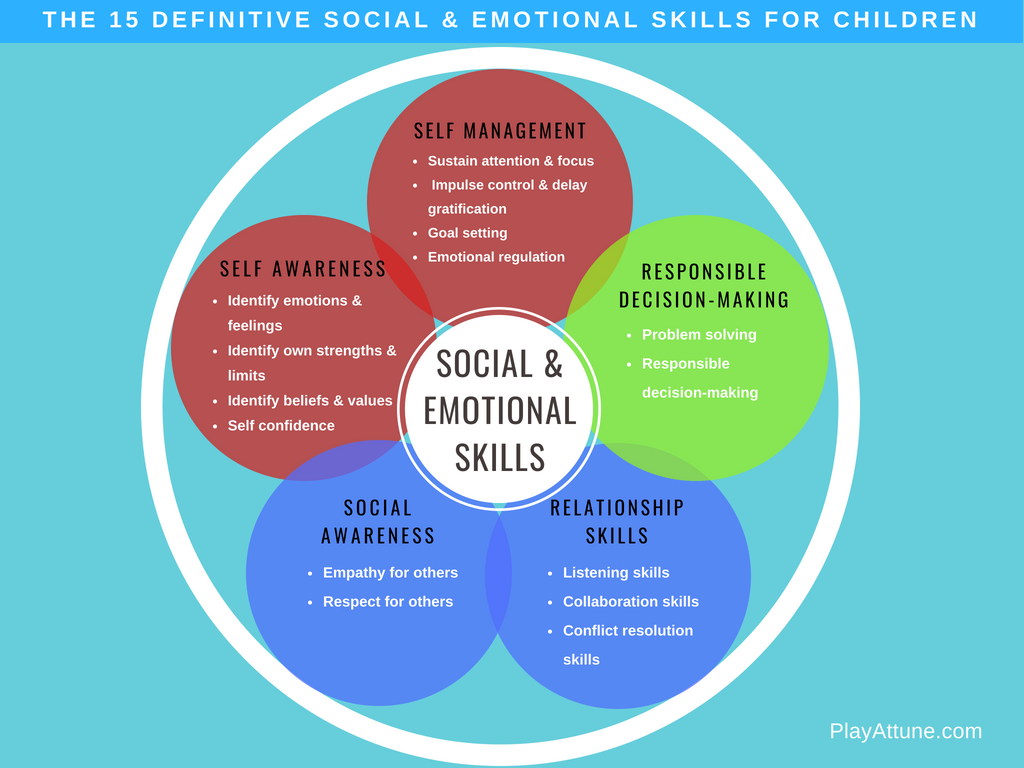
| SOCIAL SKILL | COMPETENCY QUESTION |
| Give and Receive Feedback | Tell me something important you learned from your team? |
| Tell me a situation where you had to offer your help to solve a difficult problem? | |
| Name a situation where you noticed someone working with you needing help. | |
| Tell a story about a situation where you had to live with a boss or hard-working colleague. |
1. Plan your feedback and set goals, so you don’t start a blindfold discussion;
2. Be honest with your collaborator is fundamental to give positive feedback successfully;
3. Start by exposing praises with examples and then talk about the negative points;
4. Point out solutions and give tips on how your professional can evolve to grow even more in the company;
5.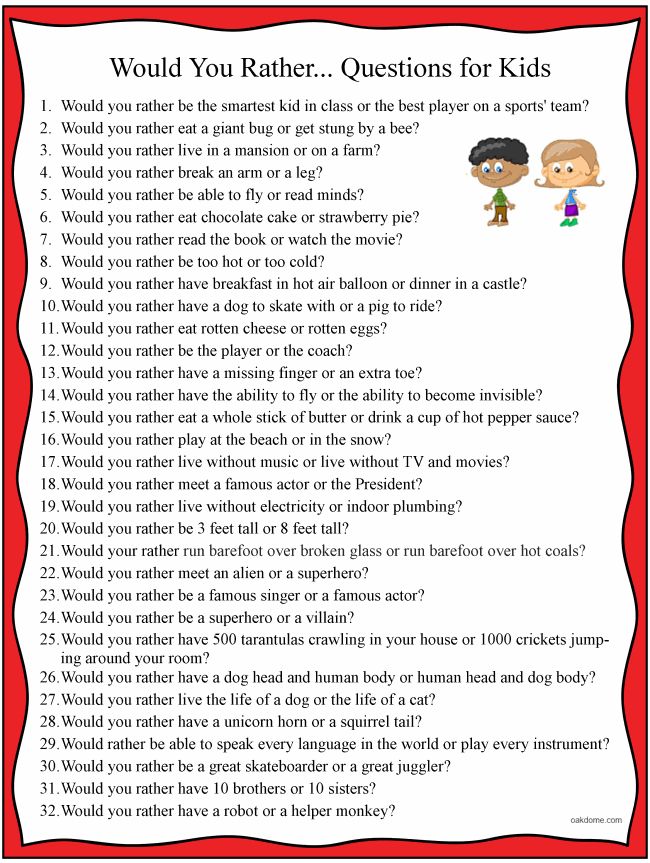 Feedback should be given individually, preferably with an eye to eye, not to expose your employee in front of the team, especially if the feedback is negative.
Feedback should be given individually, preferably with an eye to eye, not to expose your employee in front of the team, especially if the feedback is negative.
Related Articles:
20 Tips on How to Give and Receive Feedback
8 Ways to Give Constructive Criticism at Work
The next points of discussion are the importance of social skills in competency questions, and some tips for getting ready for a job interview . Before digging into that, let me add below some of the top related and interesting articles that can add to what you’re learning from this one. If any of the titles picks your interest, please click and open in a new tab, so you can check them out later. Enjoy!
The happiness when receiving a call marking the job interview gives rise to endless anxiety. After all, it’s only a few minutes to prove your worth, impress the recruiter and
Read More…
At any time, a leader is seen as one who guides one or more people to fulfill something stipulated; today, however, we understand that this journey comprises the achievement of
Read More…
We keep learning that there are three types of speeches, informative speeches, persuasive speeches and special occasion speeches.
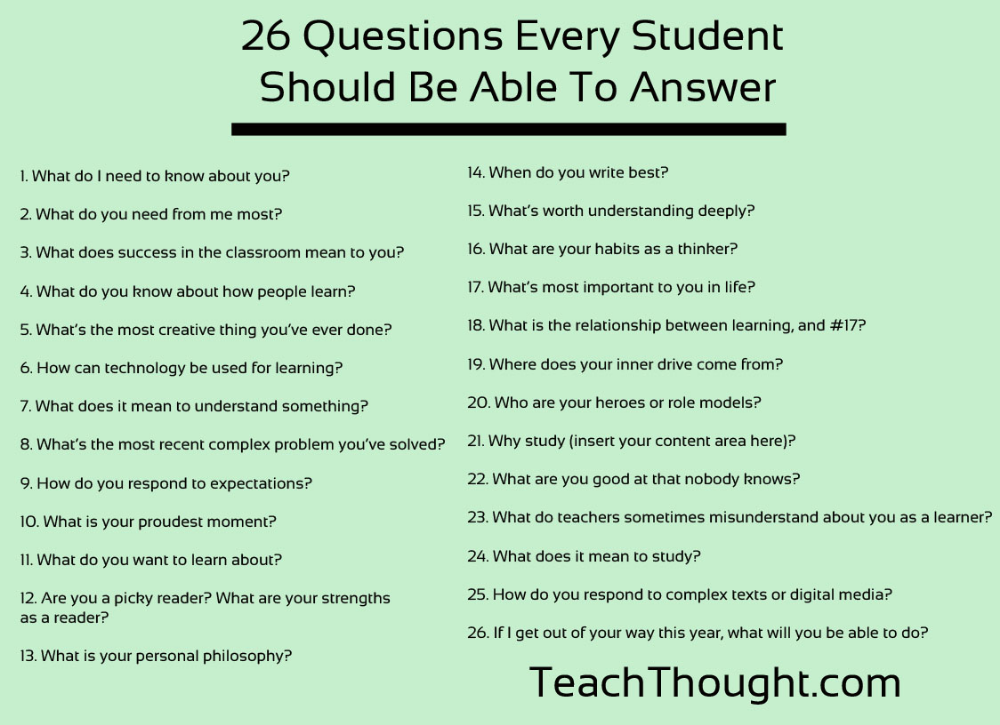 However, I believe and know that there are many more such as debates, motivational speeches, forensic speeches, impromptu speeches, eulogy, and so on. Here’s a growing list of over 13 types of speech and tips on how to deliver them.
However, I believe and know that there are many more such as debates, motivational speeches, forensic speeches, impromptu speeches, eulogy, and so on. Here’s a growing list of over 13 types of speech and tips on how to deliver them.Read More…
Some social skills like verbal communication, leadership, receive, and feedback is crucial by applying for a job.
Interviewers use competency questions to show candidates how we do in various situations in the past, revealing individual personality traits. Competency questions are an excellent help for interviewers interested in finding out exactly who a candidate and how we can act if employed.
Tips and Suggestions for Getting Ready for the Job Interview- Practice orally summarizing your skills, experience, and career path;
- Take note of your strengths and weaknesses;
- Think about the future and how you want to see your career grow;
- Find out why you want to work for the company you’re applying for.
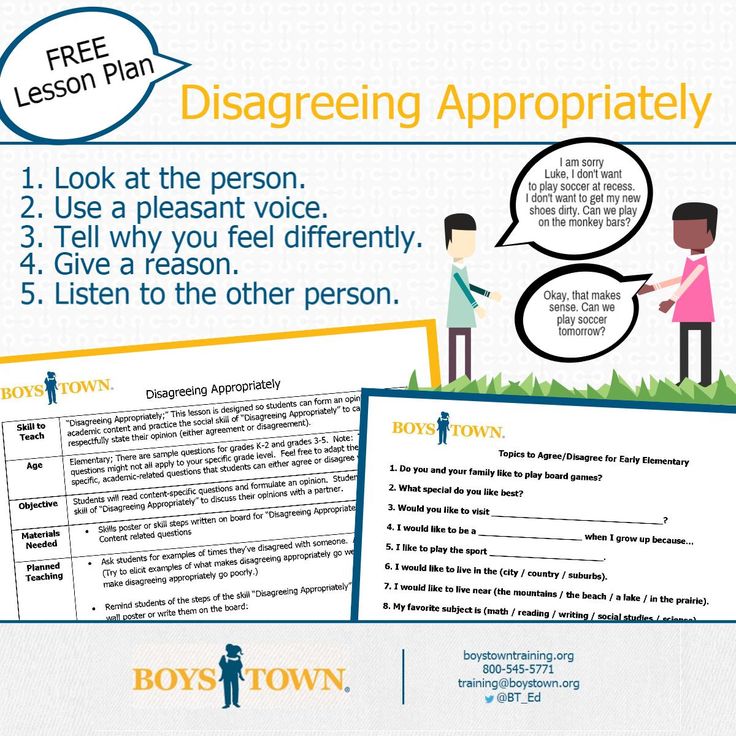
DOWNLOAD THE FREE 21 SOCIAL SKILLS COMPETENCY QUESTIONS CHEAT SHEET
| # | SOCIAL SKILL | COMPETENCY QUESTION |
| 1 | Verbal Communication | Describe how you communicate to your team a new project, new methodology, or new routines? |
| 2 | Imagine that you received a far higher target than expected; how are you going to act in disseminating this information to your team? | |
| 3 | Decision-Making | What’s the hardest decision you’ve ever made in your life? Tell us about it. |
| 4 | What’s the most assertive decision you’ve ever made, and what’s the most disastrous? Tell us about it? | |
| 5 | Describe a situation where you had to complete a job with a high standard and at the same time meet a strict deadline.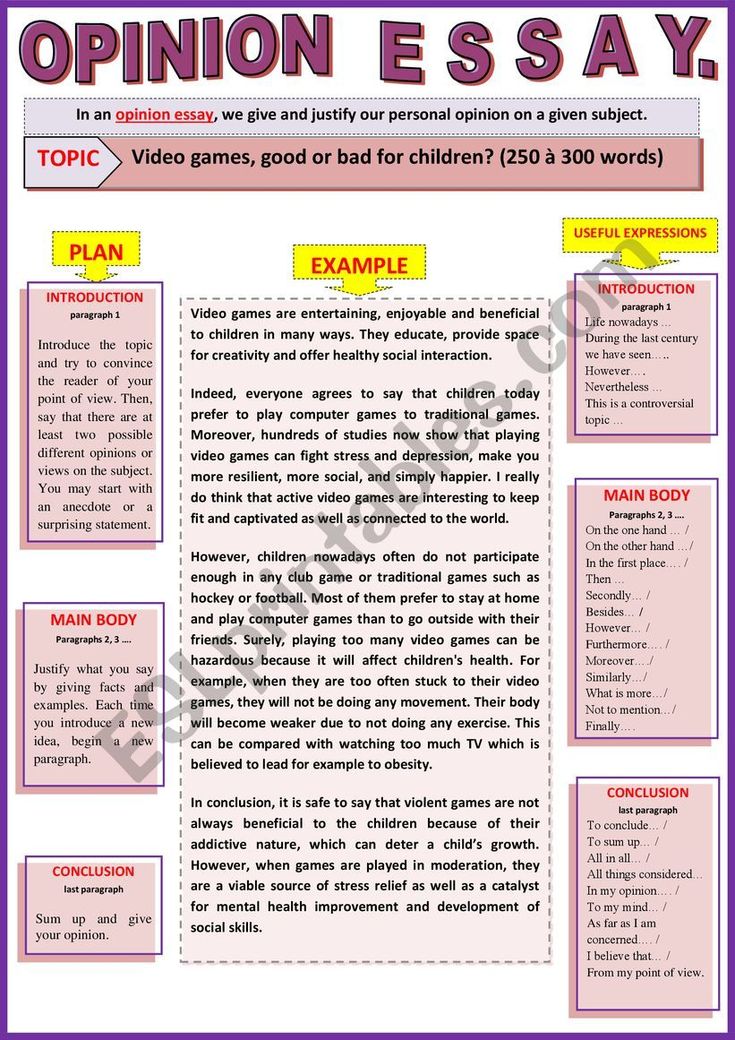 | |
| 6 | Positive Attitude | Comment on a case where you worked as hard as possible and felt like you weren’t recognized but continued the task until the final delivery. |
| 7 | Tell us about a situation where you insisted on defending your ethical values, even though the climate was not prone to this behavior? | |
| 8 | Cognitive Flexibility | Have you ever lived a situation that forced you to change your mind suddenly? How did you do? |
| 9 | Tell me about a time when you had to take responsibility for a task that was not part of your scope of work. What was it like? | |
| 10 | How do you react to difficult changes? Give a specific example. | |
| 11 | Tell me about some critical situation in a project you could predict and take actions that would prevent a failure? | |
| 12 | Time Management and Organization | Describe a situation where you had to solve several critical problems on the same day.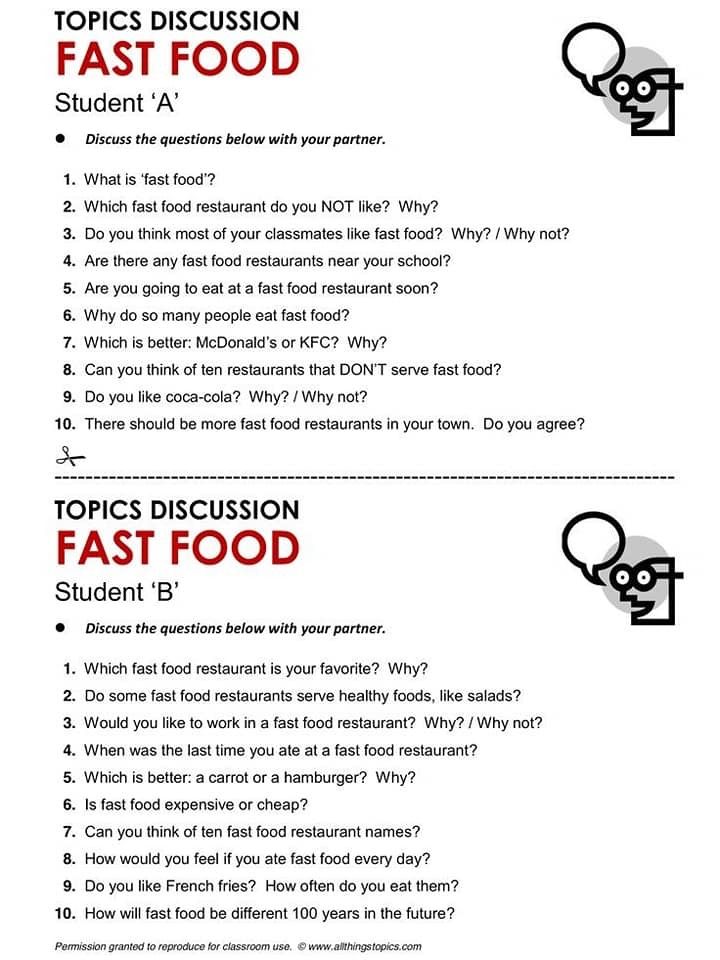 How did you get through this? How did you get through this? |
| 13 | Tell us an example of how you organize your personal and family priorities? | |
| 14 | Give examples of how you identified a work routine problem, looking more closely at the situation/project. | |
| 15 | Leadership | Tell us about a delivery you made that depended on the team and how you did to motivate people to deliver the results. |
| 16 | Do you remember any meetings where you had to position yourself quickly and your communication was effective? Tell us in detail how it was. | |
| 17 | Give us examples of how you check the results of your area’s goals. And how do you establish the action plan to achieve them? | |
| 18 | Give and Receive Feedback | Tell me something important you learned from your team? |
| 19 | Tell me a situation where you had to offer your help to solve a difficult problem? | |
| 20 | Name a situation where you noticed someone working with you needing help.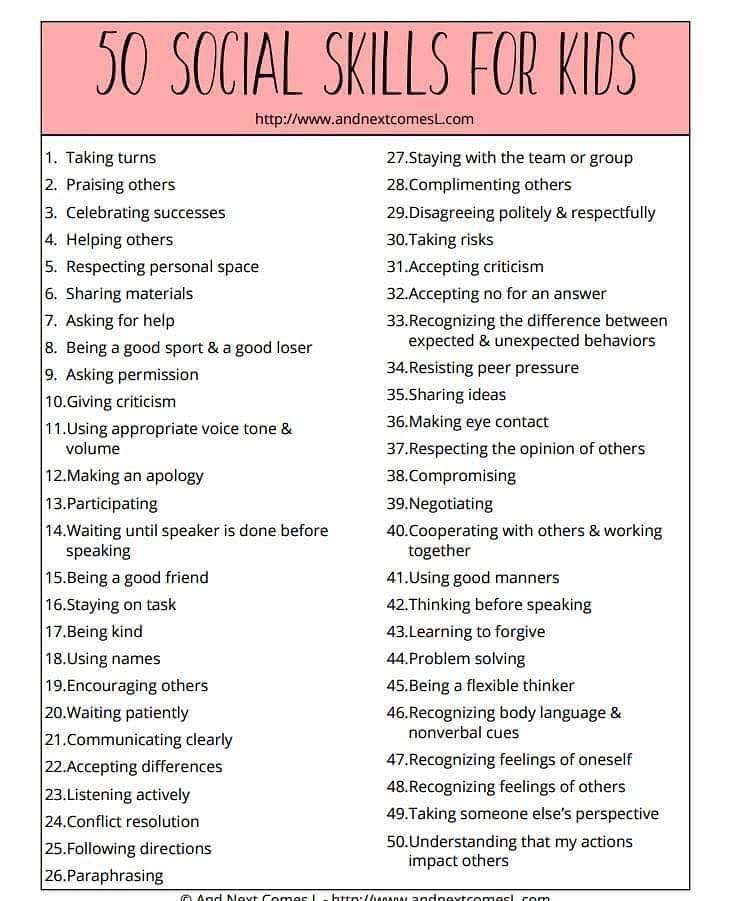 | |
| 21 | Tell a story about a situation where you had to live with a boss or hard-working colleague. |
Here’s another valuable resource for you to watch and practice with questions and answers you might be asked during that next interview.
Conclusion
A competence interview is of paramount importance within a recruitment and selection process. After all, it is possible to know better and closely each candidate who applied for the vacancy. The job interview’s purpose is to obtain from the applicant the complementary information that has not been described in the resume.
I hope you learned a bit about what kind of social skills competency questions you might get asked and with that you are more confident on how to answer or what skills you may share in such cases.
Reference and Further Reading
125 Common Interview Questions and Answers (With Tips) (2021). Career Guide.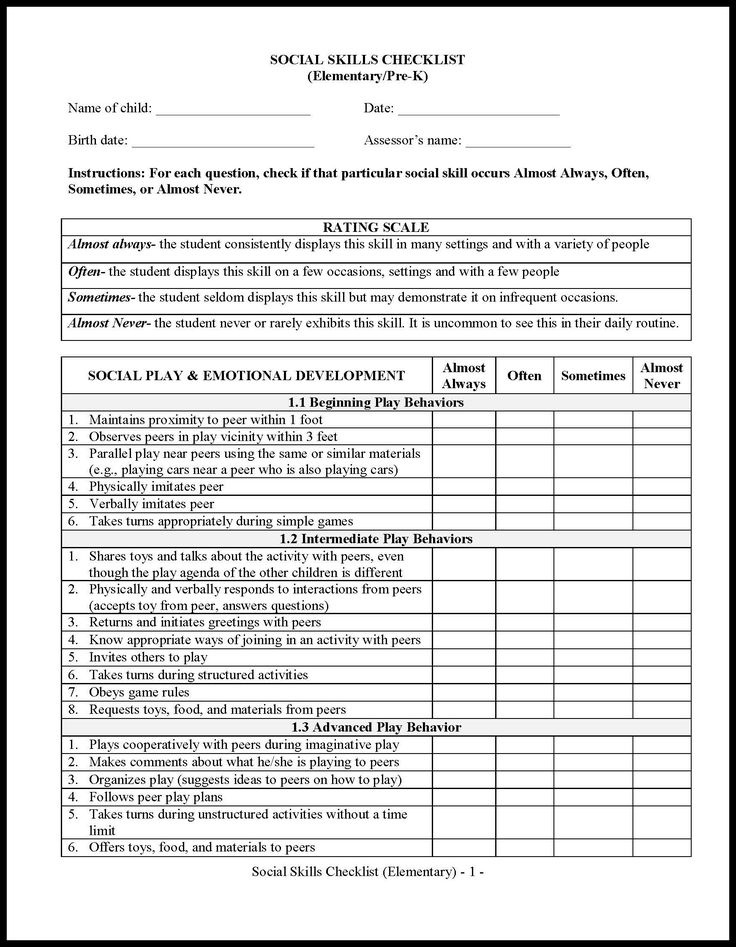
Competency-Based Questions (2021). Wikijob.
SEAGER, Charlotte (2020). How to handle competency-based interview questions. Totaljobs.
Tweet
101 Questions for Kids to Get Them Thinking and Talking [all open-ended]
How can you have more meaningful conversations with your kids? How can you use these conversations to also build up their skills to prepare them for their future? What questions are quick and fun to ask but also get them thinking critically, logically and laterally?
We have done the hard work so you don't have to! Here are 101 questions for kids that will get them "thinking and talking" - helping you get to know your child with more meaningful conversations, and at the same time building the skills they need to thrive in tomorrow's world (e.g. critical thinking, communication, creativity etc).
It's perfect for 6-12 year olds and can be done whenever you have a few minutes. Parents we work with tend to have these chats in the car, or after school or at the dinner table.
Parents we work with tend to have these chats in the car, or after school or at the dinner table.
See the KidCoachApp that thousands of other parents have been using to have all this and more in the palm of your hand, but in the meantime enjoy the list below.
Critical thinking questions
1. How many iPads do you think there are in the world?
2. How many grains of sand do you think there are on a typical beach?
3. What would you do with a million dollars?
4. If you could go back and time and change one thing, what would it be and why?
5. If you could have any superpower, what would it be and why?
6. Is there life on other planets?
7. What would you name a new colour?
8. What are 10 different things you can do a cup?
9. How would you improve a sofa to make it better?
10. When Baby Shark grows up, will he still be called Baby Shark?
11. What would happen if it never rained?
12.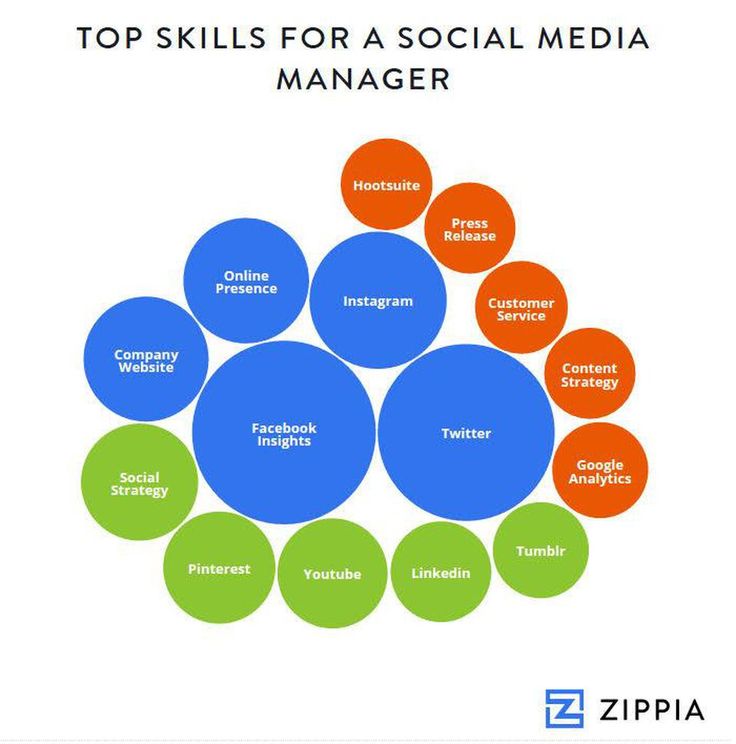 How can you make £100 or $100 by next week if you wanted to?
How can you make £100 or $100 by next week if you wanted to?
If you are particularly interested in critical thinking then this ultimate guide to developing critical thinking skills in your kids is a must-read.
Debating questions for kids
13. Should children set their own bedtimes?
14. Do you need teachers at school or can you just learn from computers?
15. Is it right to eat animals?
16. Should everyone donate money to charity?
17. Should children have to wear school uniforms?
18. Should children choose what to learn at school themselves?
19. Does Santa Claus only bring presents for good children?
20. Should zoos be banned since they are unfair to animals?
21. Should children be paid if they get good grades?
22. Is social media a good or a bad thing?
23. Should every child have their own mobile phone?
Fun communication challenges
24. How would you describe a car to an alien?
How would you describe a car to an alien?
25. How would you describe a tree without saying green, plant or leaves?
26. What is a rectangle?
27. How would you describe an elephant without saying animal, trunk or grey?
28. What is a circle?
29. Can you name 10 different emotions?
30. What is the number five?
31. Can you say the alphabet backwards?
32. Can you talk for one minute about anything without saying “umm” or “err”?
33. Can you say “Hello” in three different accents?
For more fun talking game ideas, check out this list of 22 car games to keep kids entertained using only your voices!
Alternatives to “How was your day?”
34. What was the best thing that happened to you today?
35. What will you do tomorrow that you did not do today?
36. Tell me about something new that you learned today?
37. What made you laugh today?
38. Who did you play with today?
39.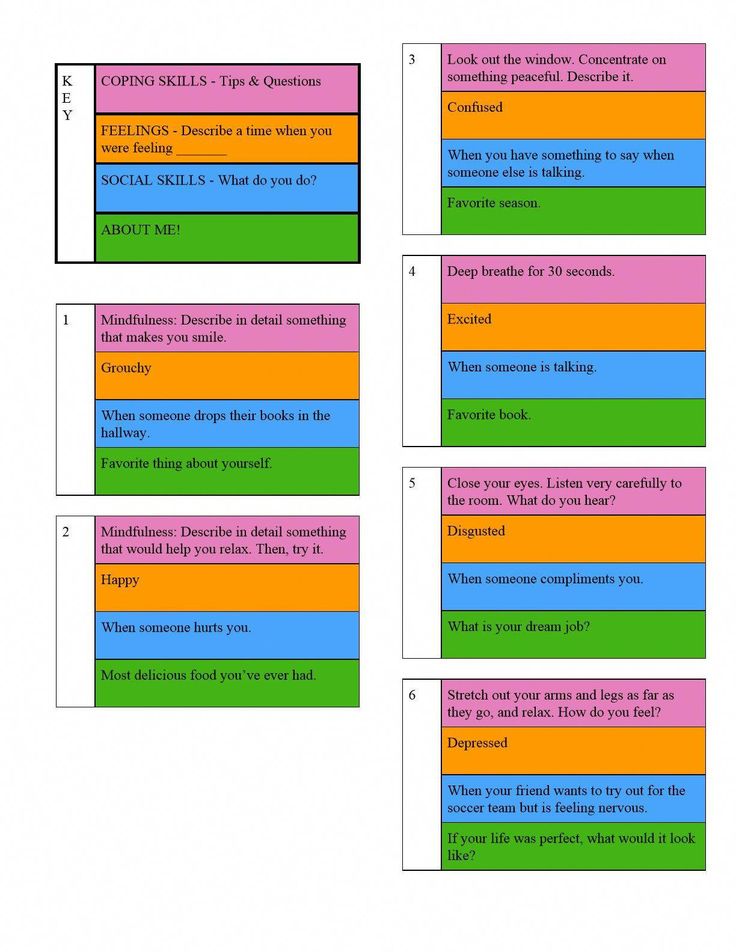 What did you eat for lunch?
What did you eat for lunch?
40. What kind of a person were you today?
41. What made your teacher smile today?
42. What made you really proud today?
43. What questions did you ask the teacher today?
44. What do you think your teacher will be doing tonight?
Would you rather questions?
45. Would you rather find true love or win one million dollars?
46. Would you rather end poverty or end racism?
47. Would you rather be gossiped about or ignored?
48. Would you rather be an ant or a fly?
49. Would you rather be able to fly or have super strength?
50. Would you rather be 1 foot taller or 1 foot shorter?
51. Would you rather be more like Mum or more like Dad?
52. Would you rather be the sand castle or the wave?
53. Would you rather live to 100 years old sad or live to 50 years old but happy?
54. Would you rather live without TV or live without internet?
We have lots more of these by the way in this 101 list of the BEST "would you rather.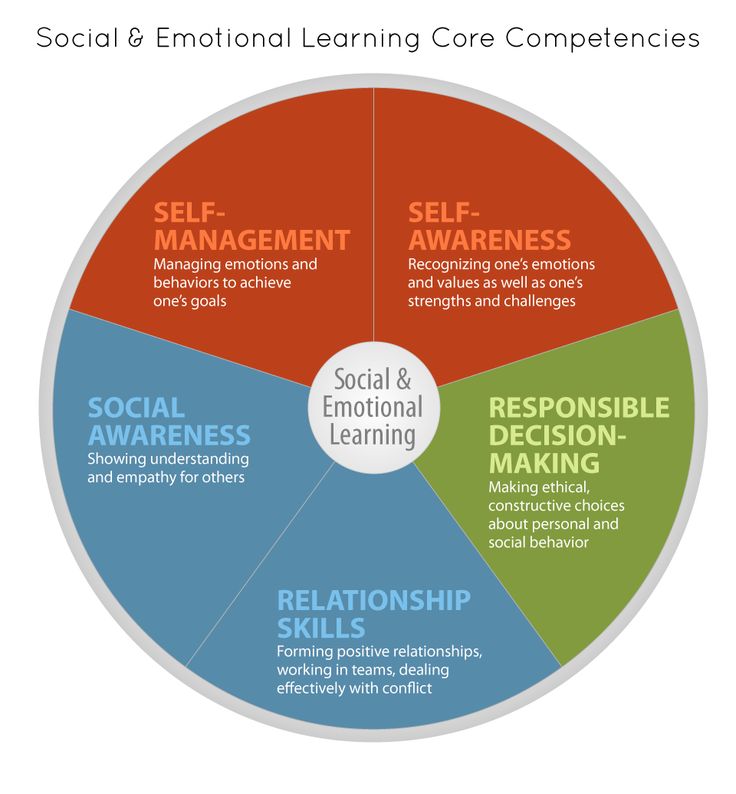 ..?" questions for kids.
..?" questions for kids.
Try these with Harry Potter fans!
55. Which Hogwarts house would you be sorted into and why? (critical thinking)
56. If you owned the Philosopher's stone and could live forever, what would you do? (creativity)
57. What make Harry Potter a good leader? (leadership)
58. Is Professor Snape on the good side or the bad side? (critical thinking)
59. Why do wizards hide themselves away from muggles? (philosophy)
60. How would you explain the game of quidditch to a muggle? (communication)
61. Why are most wizards scared to say "Lord Voldemort" out aloud? (empathy)
62. How do dementors make you feel? (mindfulness)
63. If you were an animagus and could turn into any animal, which would you choose and why? (creativity)
64. Which magical object would you choose to have and why - marauders map, time turner or invisibility cloak? (critical thinking)
65.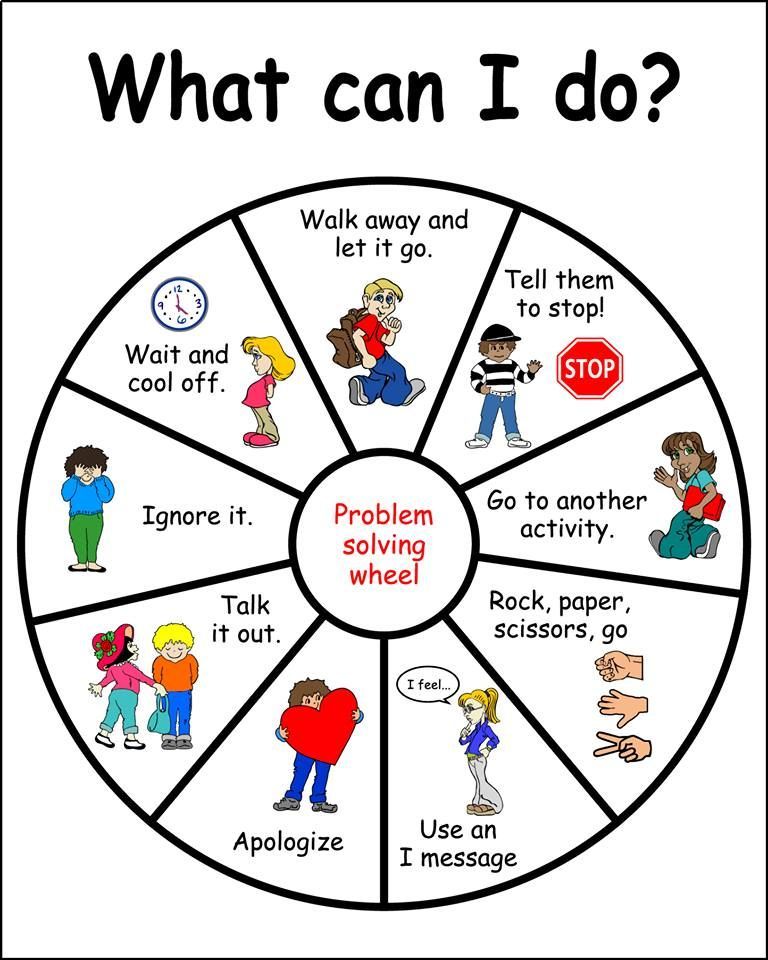 What makes Dumbledore such a good headmaster? (leadership)
What makes Dumbledore such a good headmaster? (leadership)
Get to know you interview questions
66. What are your three greatest strengths?
67. What is your favourite subject?
68. What makes you different?
69. What are your three greatest weaknesses?
70. Who do you want to be like when you grow up?
71. What is happening in the book you are reading right now?
72. What will be different about the world when you are an adult?
73. What is going on in the news at the moment?
74. Who are your best friends and why do you like each other?
75. What is the funniest thing you have ever done?
76. What motivates you?
To build resilience
77. What is a growth mindset?
78. What do you feel grateful for today?
79. What is something you can do today that you couldn’t last year?
80. What does a confident person look and sound like?
81.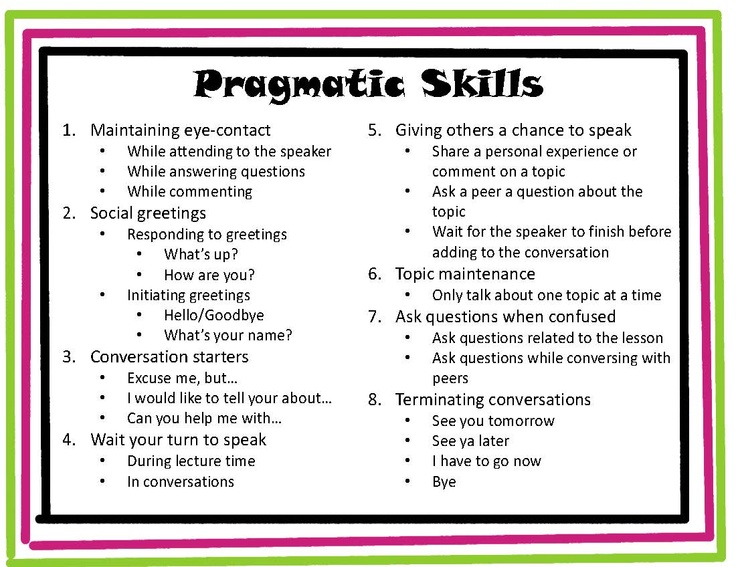 What do you worry about the most?
What do you worry about the most?
82. What are you better at than most other people?
83. What do you love to learn?
84. What make you happy?
85. How important is winning?
86. What is your best quality?
87. What do you find really easy to do?
88. What can you teach others?
Perfect for family dinners89. What is your favourite dessert?
90. If you could just eat one food forever what would it be?
91. Where shall we go on holiday next?
92. What is one thing you admire about the person on your left?
93. What animal are you most like and why?
94. If you could swap places with anybody else in the family for one day, who would you pick and why?
95. Tell us something about yourself that we probably don’t know?
96. If you could have one wish what would it be?
97. What is the hardest thing about being a child?
98. What three words best describe you?
99. What three things do we want to do as a family next month?
What three things do we want to do as a family next month?
100. If you could choose a new name, what would it be?
101. What will we all be doing in 20 years time?
A final suggestion
If you liked this then why not check out the KidCoachApp (30 second demo video above) which has everything from this article and much more in it, all regularly updated!
It puts these great questions in the palm of your hand and the next time you are in need of some conversation inspiration all you have to do is whip out the app! There are hundreds of critical thinking questions for kids that need logical and lateral thinking to answer.🤔
We are backed by lots of education and parenting experts (see our Advisory Board here) and parents have absolutely loved using the KidCoachApp (see the reviews here).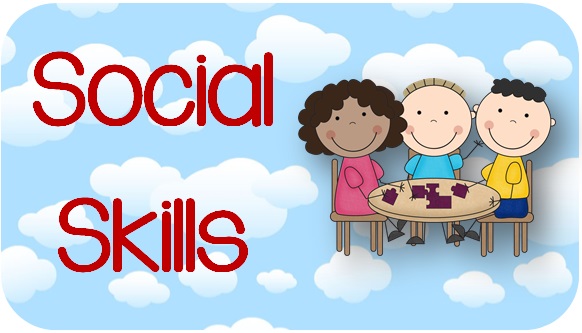
It's a 2 week free trial, with no payment details needed, so you have nothing to lose. 👍
👇 Download the KidCoachApp now from your usual app store.
Social Skills
PROGRAM DESCRIPTION
The Psychological Program "Social Skills" is designed to teach social behavior in a safe and friendly environment. At each group meeting, children are offered a role model and activities to practice skills. The approach is based on structured learning, a holistic teaching method that provides a framework for systematic learning of skills, similar to academic ones. The emphasis is on providing alternative behaviors to improve the effectiveness of social interactions. The curriculum is based on Michelle Garcia Winner's "Think Social: A Social Thinking Curriculum for School-Age Students" and includes structured activities to address real socialization issues.
Our social skills training for teenagers has a wide range of benefits. Our social skills groups will help teenagers develop the following qualities:
1) Easier interaction with others
We understand how difficult it can be to interact with peers, especially during adolescence. Our social skills experts use proven techniques to help your child learn how to initiate and maintain conversations. Groups also help your teen read other people's reactions, body language, and attitudes.
2) A sense of belonging
We devote the necessary time and effort to match each client with a group that matches their personality. Our team provides a safe space for your teenager, where his peers understand and unconditionally accept his feelings and emotions. And also thanks to the skills of how to cope with emotions and stress on their own.
3) Boosting Self-Confidence
At our center, coaches and group members always encourage each other to use their social skills in real life, whether at home, at school or with friends. We always want your teen to be confident in their ability to socialize and make friends. And also how to deal with your emotions in contact with others and one on one with yourself.
We always want your teen to be confident in their ability to socialize and make friends. And also how to deal with your emotions in contact with others and one on one with yourself.
Group goals include :
- Making and supporting friends
- Dealing with environmental pressures (peer, teachers and family)
- Using self-control and following instructions.
- Think before you act
- Be able to listen and understand
- Accept rules and consequences
- Set goals
- Solve problems
- Work with feelings
- Acceptance
- Practice in real life situations
- Appropriate behavior modeling
- Communication and feedback
- Activities and games used to teach teamwork and build skills through collaborative activities
If you are interested, please contact your therapist at the Grigory Misyutin Psychological Center or the center administrator at
8 (906) 026-55-33 or leave a request and the curator of the program will contact you.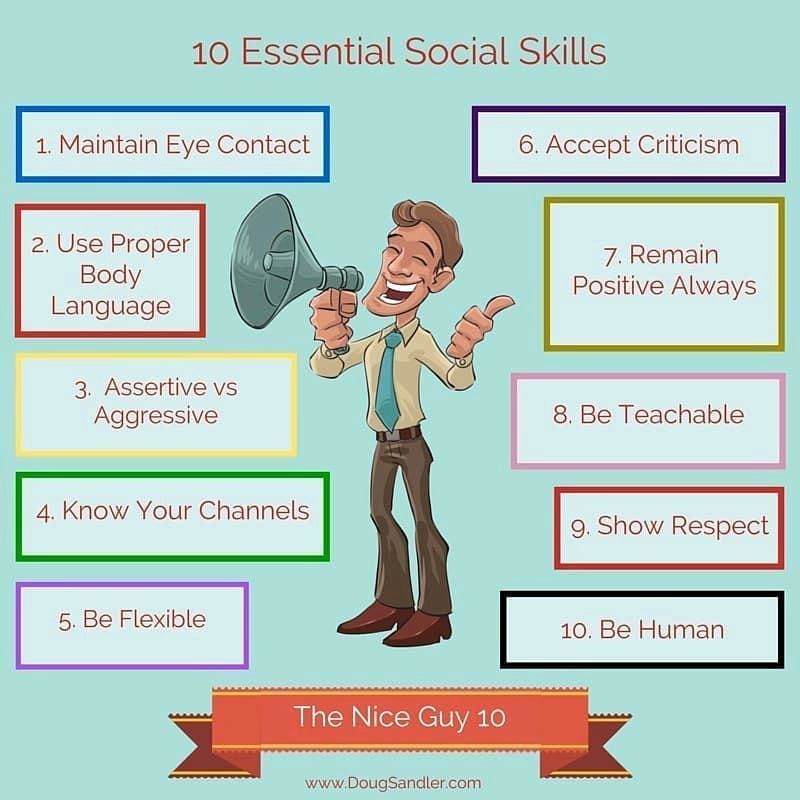
Social skills of preschoolers - development of social skills in children
The development of social skills is a necessary element of education. A child with a high degree of socialization will quickly get used to kindergarten, school, any new team; in the future will easily find a job. Social skills have a positive effect on interpersonal relationships - friendship, the ability to cooperate.
Let's figure out what social skills are.
What are social skills and why develop them?
Social skills - a group of skills, abilities that are formed during the interaction of a person with society and affect the quality of communication with people.
Man is a social being: all our talents and aspirations are realized thanks to other members of the group. Others evaluate our actions, approve or condemn our behavior. It is difficult to reach the pinnacle of self-actualization alone.
This is why social skills are important. They should be developed from early childhood and honed throughout life.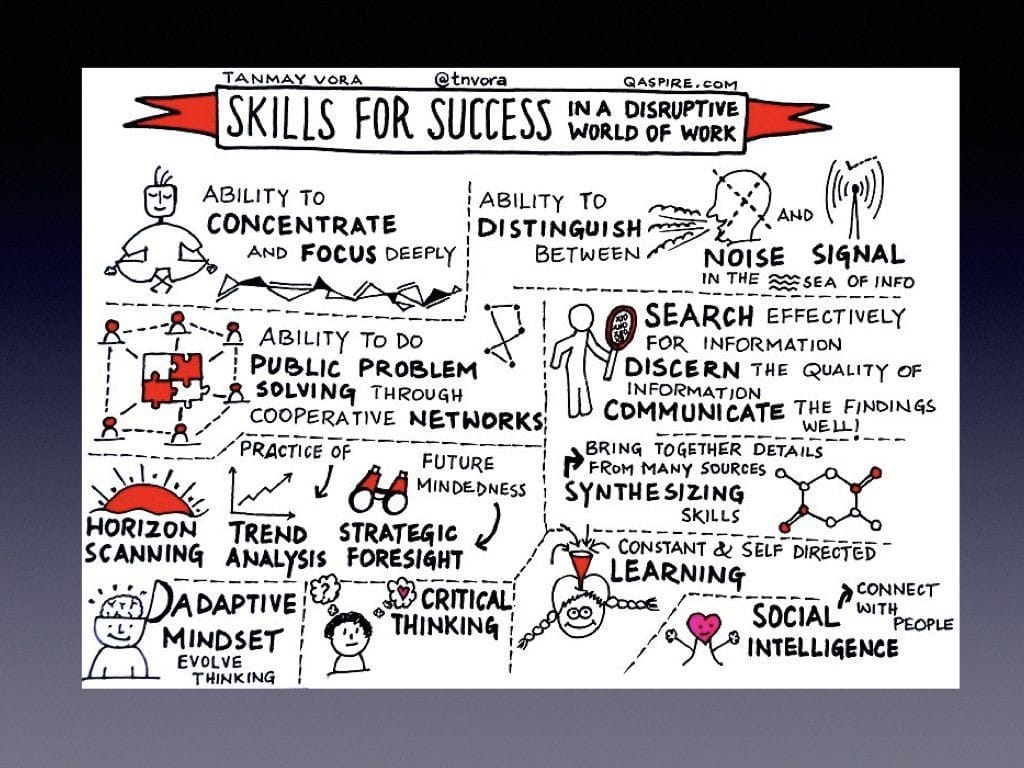
Social skills are a reflection of the child's emotional intelligence, to which educators and teachers assign an important role in the process of personality development. Without this group of skills, a smart child will not be able to apply the acquired knowledge in practice: it is not enough to create something outstanding, you need to be able to correctly convey thoughts to the public.
Sometimes people mistakenly believe that social skills are only about communication. In fact, skills include many multidirectional aspects: an adequate perception of one's own individuality, the ability to empathize, work in a team, etc.
Why do we need social skills?
- Regulate the area of interpersonal relationships: the child easily makes new friends, finds like-minded people.
- Minimize psychological stress: children with developed social skills quickly adapt, do not feel sad due to changes in external circumstances.
- They form an adequate self-esteem from childhood, which positively affects life achievements and development in adulthood.

- Social skills cannot be separated from building a successful career: the best specialists must not only understand the profession, but also have high emotional intelligence.
Development of social skills in a child
Social skills need to be developed from preschool age, but older children and even teenagers may well learn to interact with the world.
It is recommended to pay attention to areas of life that bring discomfort to the child, significantly complicate everyday life.
- Friends, interesting interlocutors: the kid does not know how to join the team, he prefers to sit in the corner while the others play.
- Verbal difficulties. The child does not understand the rules of conversation, is poorly versed in the formulas of etiquette (when you need to say hello, say goodbye, offer help).
- Problems with the non-verbal side of communication. Such a baby does not recognize the shades of emotions, it is difficult to understand how others relate to him.
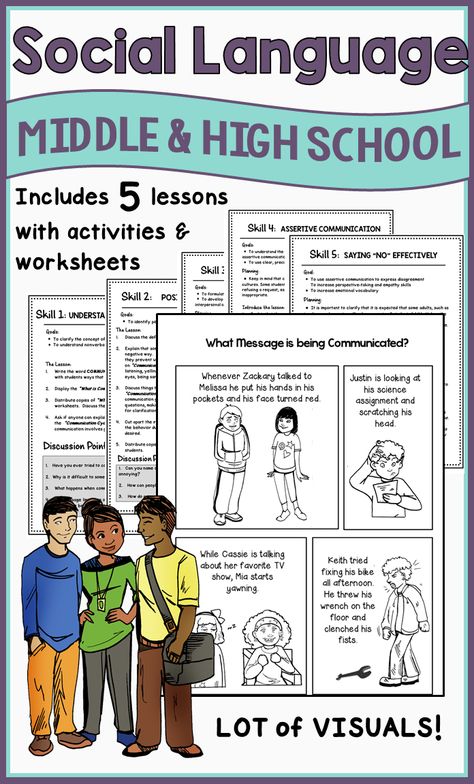 Cannot "read" faces and gestures.
Cannot "read" faces and gestures. - Does not know the measure in expressing a point of view: too passive or, conversely, aggressive.
- The child bullies classmates (participates in bullying) or is a victim.
In case of severe moral trauma, one should consult a psychologist: for example, school bullying is a complex problem that children are not able to cope with on their own. The involvement of parents and teachers is required.
In other cases, family members may well help the child develop social skills.
What are the general recommendations?
1. Be patient
Don't push your child to get things done. Let them take the initiative: for example, do not rush to help during school gatherings, let the baby work on the problem on his own. The same goes for lessons and other activities.
2. Support undertakings
Children's dreams seem trifling to adults, but the initiative turns into a habit over the years and helps to discover new projects, meet people, and experiment.
3. Criticize the right way
When making negative comments, remember the golden rule of criticism: analyze the work, highlighting both positive and negative aspects in a polite way. Commenting on the specific actions of the child, and not his personality or appearance - this will lead to problems with self-esteem.
4. The right to choose
It is important for children to feel that their voice is taken into account and influences the course of events. Invite your child to personally choose clothes, books, cartoons. Ask about ideas, plans: “We are going to have a rest together at the weekend. What are your suggestions?
5. Personal space
Make sure that the baby has a place where he can be alone, take a break from talking. Personal things should not be touched: rearrange without prior discussion, read correspondence with friends, check pockets, etc.
Children, noticing the respectful attitude of adults, quickly begin to pay in the same coin; the atmosphere in the family becomes warm and trusting.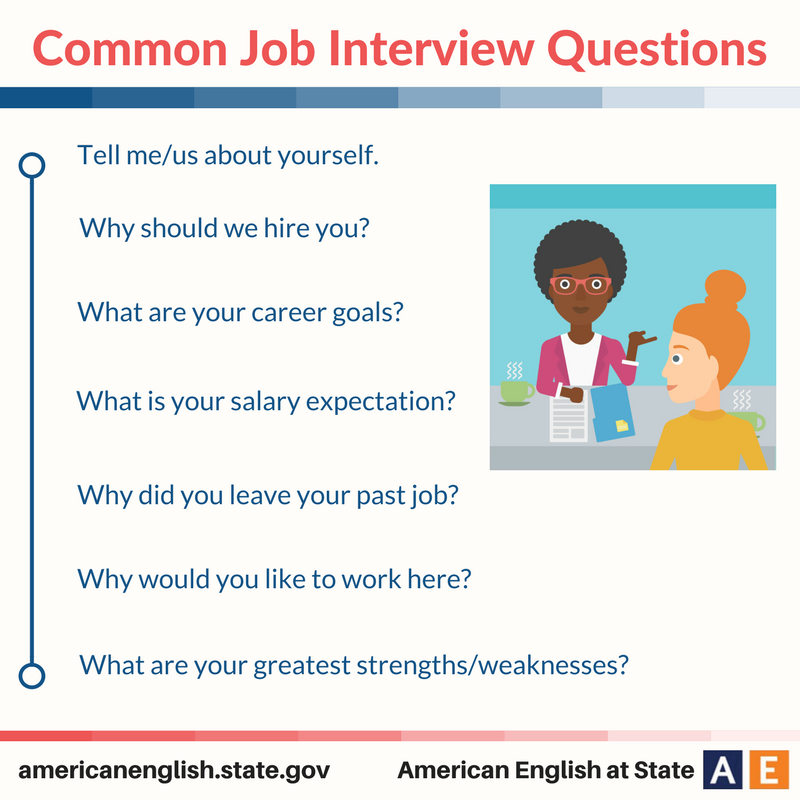
What social skills should be developed in a child?
Let's dwell on the main qualities and skills, the development of which is worth paying attention to.
1. The ability to ask, accept and give help
Without the ability to ask for help, the child will deprive himself of valuable advice; the lack of the ability to accept help will lead to losses, and the inability to provide help will make the baby self-centered.
- Let the child help those in need: for example, a lagging classmate.
- Explain to your child that getting help from friends and teachers is not a shame.
- Show by personal example that mutual help enriches experience: tell how you exchange advice with colleagues, friends.
2. The ability to conduct a conversation and get the right information
Being a good conversationalist is difficult, but the skill is honed over time and brings a lot of benefits.
- Prompt your child for dialogue development options: for example, you can start a conversation with an appropriate question, a request for help.

- Do not leave the child in the role of a silent listener: discussing pressing issues at home, ask the opinion of the baby.
- Support children's public speaking: presentations at school, performances, funny stories surrounded by loved ones will add confidence.
3. Empathy
Empathy is the ability to recognize the emotions of others, put yourself in the place of another person, empathize.
This ability will make the child humane, prudent. How can it be developed?
- Start by recognizing the child's feelings - it is useless to listen to people if the person does not feel personal feelings. Ask your baby: “How do you feel after a quarrel with friends?”, “Do you want to relax today?”
- After conflicts with classmates, ask your child how the children with whom the quarrel may feel now.
- While watching cartoons, reading books, pay your child's attention to the emotional state of the characters.
4.
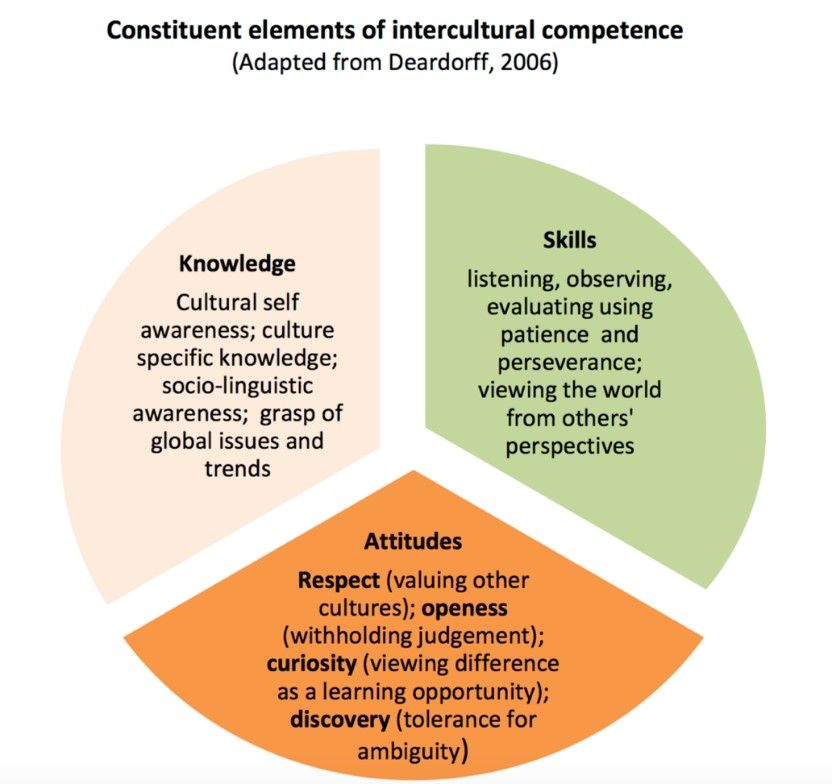 Ability to work in a team
Ability to work in a team Many children can easily cope with tasks alone, but this is not a reason to refuse to work in a team. It gives the opportunity to exchange ideas and experience, delegate tasks, achieve goals faster and more efficiently.
- If the child does not communicate with members of the team, try to introduce him to another social group: for example, the lack of communication with classmates can be compensated by a circle of interests, where the child will feel calmer.
- Make the family a friendly team in which the child has his own "duties": for example, do housework, remind parents of upcoming events. Any activity related to the well-being of other family members will do.
5. Respect for personal boundaries
Not having an obsessive desire to interfere in other people's lives is a valuable skill that helps win people's sympathy.
- Respect the child's personal boundaries: do not enter the nursery unannounced, do not rummage through personal belongings and correspondence, if the matter does not concern the life and safety of the baby.
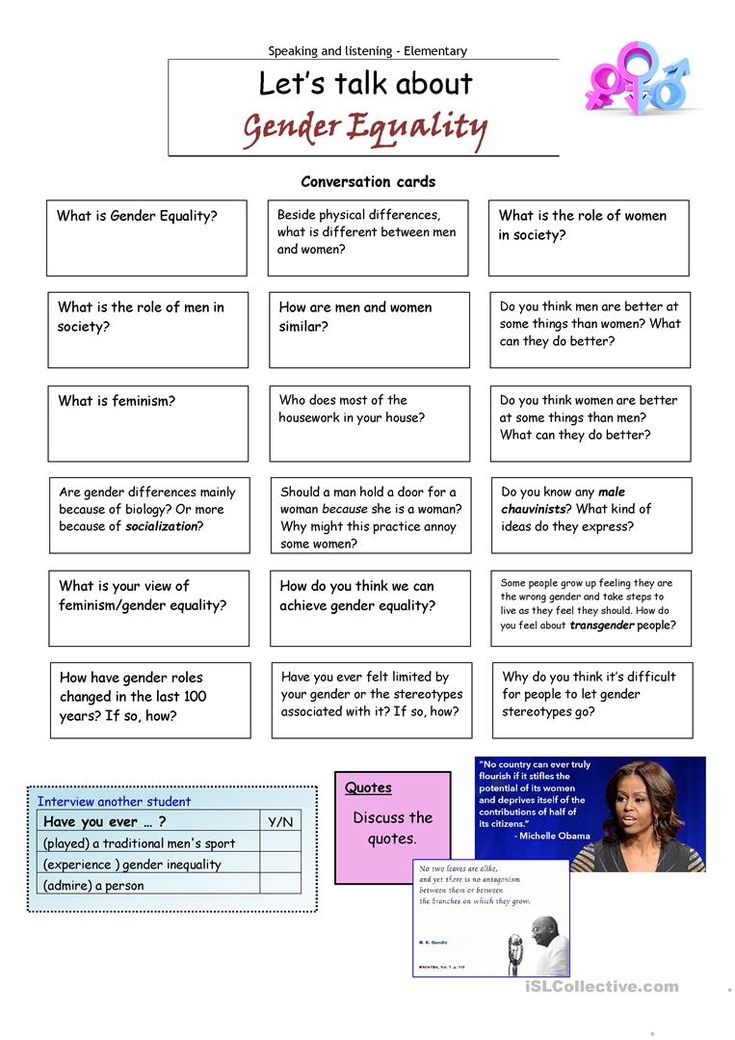
- If the child violates other people's boundaries (takes toys without permission, asks uncomfortable questions), talk about it in private.
6. Ability to overcome conflict situations
It is difficult to imagine our life without conflicts. The task of the child is to learn how to culturally enter into a discussion, defend his point of view, and not be led by the provocations of his interlocutors.
- Talk about problems calmly, without raising your voice. Do not put pressure on the child with parental authority unnecessarily: the child is a separate person who has the right to an opinion.
- Do not judge people for views that differ from those of your family but do not affect your well-being. Show your child that the world is very different.
- You can demonstrate to children the basics of a civilized dispute, explain what arguments are, etc. It is advisable to teach this child in kindergarten.
7. Self-confidence
Stable and adequate self-esteem is a quality that not all adults possess.